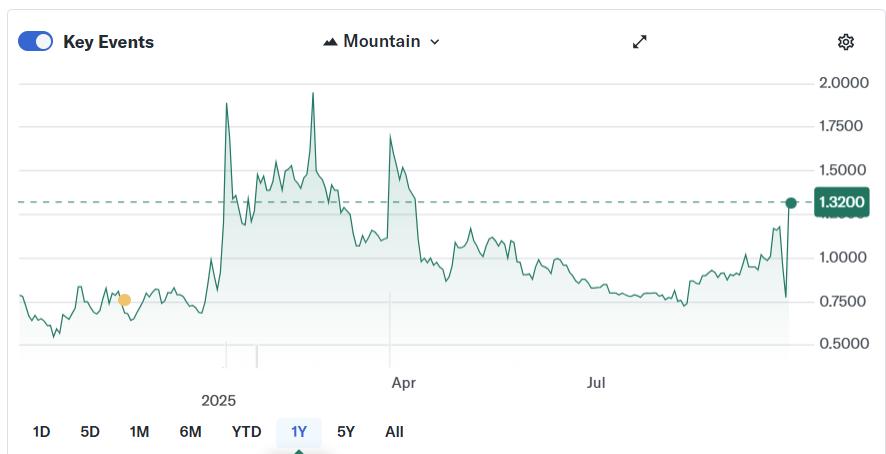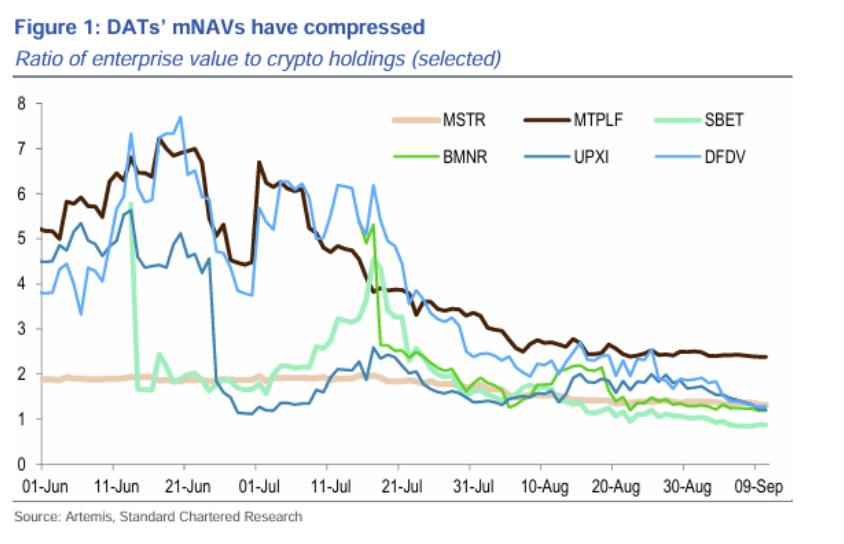Predictive Oncology (POAI), a biotech company specializing in AI-driven cancer research, announced a $344.4 million digital asset treasury centered around Aethir’s ATH token, marking the first time a Nasdaq-listed company has held tokens from a decentralized physical infrastructure network. (DePIN).
The capital strategy was developed with the guidance of DNA Fund, a Web3 investment and advisory firm, and BTIG, which acted as the placement agent, Predictive Oncology revealed on Monday. It is structured as two simultaneous private public equity placements (PIPEs), combining a cash investment with a crypto-PIPE that includes in-kind contributions from ATH tokens, the DNA Fund said in a separate announcement.
This structure allows Predictive Oncology to register the DePIN token infrastructure as an asset on the balance sheet, offering a hybrid financing model that links traditional stock markets with decentralized computing networks. The ATH vault will be connected directly to Aethir’s decentralized GPU infrastructure.
Aethir is a decentralized cloud network that provides GPU infrastructure for high-performance AI, computing, and gaming applications. The network uses blockchain technology to coordinate and distribute access to physical computing resources, making it a major participant in the DePIN market.
The network’s native asset, ATH, is currently trading at less than $0.06 with a market cap of about $2.3 billion, according to CoinMarketCap. ATH’s 24-hour trading volume rose more than 330%, likely due to Treasury’s predictive oncology announcement.
Predictive oncology blockchain pivot lifts stock
Predictive Oncology’s move into decentralized infrastructure attracted early interest from investors, with shares rising more than 70% on Monday after announcing its digital asset treasury. The rise pushed the stock to its highest level since March.

Before the announcement, Predictive Oncology had spent the last two years trading as a small-cap stock with limited revenue and a history of quarterly losses. The company reported revenue of just $2,682 for the second quarter of 2025 and $110,310 in the first quarter, along with net losses exceeding $2 million in each period.
In its most recent quarter, Predictive Oncology raised approximately $586,000 through a go-to-market offering facility to help fund operations.
In March, the company sold its Skyline Medical division, which made an automated fluid waste management device used in medical centers, as part of a broader strategy to cut costs and refocus on AI-driven drug discovery.
Predictive Oncology’s new strategy places the company among a growing group of small and micro companies focused on digital asset treasury models. In July, former biotech company 180 Life Sciences rebranded to ETHZilla and announced plans to stake Ethereum (ETH) as a treasury asset.
Other companies have taken public, including Mill City Ventures (MCVT), Nature’s Miracle (NMHI), Upexi (UPXI), Helius Medical Technologies (HSDT), and AVAX One, formerly known as AgriFORCE Growing Systems, has taken similar steps to integrate crypto assets onto their balance sheets.
Analysts at Standard Chartered have warned that digital asset treasury companies could face valuation pressure as market net asset values (mNAVs), which compare a company’s enterprise value to its cryptocurrency holdings, continue to decline.

“We see market saturation as a key driver of the recent digital asset value (mNAV) squeeze,” Standard Chartered wrote, referring to the rapid increase in firms adopting digital asset treasury strategies this year.





